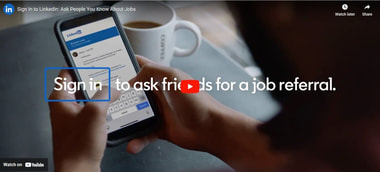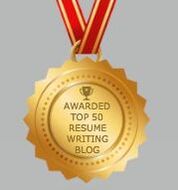Recession Proof JobsI used to think that there is a list of recession-proof jobs and it is the answer to securing a stream of recession-proof income. Later, I learned that almost everyone can recession-proof their career if they learn how to build a network with the right connections. Career networkingSuper Connectors Last week, on October 17th, 2019, Chris Winfield and Jen Gottlieb the famous power couple, communications experts, and the “super connectors” who co-founded Super Connector Media were interviewed by Bold TV and discussed the best strategies to recession-proof your career. Click here to watch the video on YouTube: https://youtu.be/z5g7HLcYqLw The more you connect with the professionals in your circle, the more opportunities you will be creating for your career. When facing layoffs, having a large network can be the best solution. Prior experience has shown that most people find jobs through their network and not through online applications. We must not underestimate the value of our network and we should not keep it inactive for too long. The worksheet below is a helpful guide for jobseekers to help them identify social connectors in their lives — people with social influence who can help them in their job search. Top 20 People ListWinfield and Gottlieb Social Connection Worksheet Based on the principles from Chris Winfield and Jen Gottlieb, Super Connector Media
This allows you to see how many people you actually have in your life and how these people can help you achieve your goals.
Winfield, also known as the “Super Connector”, is the editor at large for Arianna Huffington’s Thrive Global, a columnist for TIME, Business Insider, and INC., and host of a show for Entrepreneur. He’s been featured in the Wall Street Journal, New York Times, NBC’s Today Show, USA Today, Fast Company, Forbes and over 200 other media outlets.
Jen Gottlieb is known for getting her celebrity and millionaire (and billionaire) CEO clients performing at the top of their game. A former Broadway actress, and founder of her own successful companies (JLG productions, and JLG Fitness), Jen has been featured in US News, CBS News, American Dream TV, MTV, Well + Good, Women’s Health and has been a two-time Cover Model for Steppin’ Out Magazine. Stuck in a career rutAfter you’ve been working for 20 years or more, it’s natural to assume that you know how to manage your career. However, a study by Harvard Business Review found that mid-career professionals need help if they want to avoid being undervalued and overworked. The researchers found that professionals between the ages of 40 and 48 were the group most likely to make work decisions that led to less-than-successful outcomes. This was partly due to the pressures of keeping up with daily demands and feeling stressed about making changes. Employees often felt trapped between the need to innovate and the fear of being penalized if they took risks that didn’t produce quick gains. What to do when stuck in your careerif you think you’re heading into a rut, there are many ways to recharge your career. Try these suggestions for dealing with fear and boredom and achieving more balance in your life. Dealing with Fear and Boredom:
Creating Work Life Balance:
Your mid-career years can be an exciting time to learn and grow. You can make dramatic changes like changing jobs or starting a new business or make smaller adjustments in how you approach your current position and daily life. How to answer "Tell me about yourself"The Interviewer may or may not have read your resume thoroughly. But this first question is really NOT about your resume or your career path or your accomplishments, etc. Rather, this is an opportunity you are given to SET THE TONE of the interview. The Interviewer is noting your vibe as much as he/she is noting your words. In other words, you may be nervous, confident, mean, nice, professional, unprofessional, demanding, courteous, comfortable in your skin, uncomfortable in your skin, fearful, trusting, curious, careless, etc. As you project your essence through your demeanor you will set the tone for the interview. It’s an icebreaker. Answering "Tell me about yourself" - Recruiter's Advice My own experience as a Recruiter I have interviewed more than a few thousand job seekers. My icebreaker questions would vary often. For example:
While interviewing candidates I might ask any or a combination of the above-listed questions or other similar questions, mostly with the same purpose. I needed to hear how this person presents him/herself when they know they only have a chance to use a few words. How do they even “conduct” themselves when answering my initial question? From there on, I would have a slightly better idea about the person’s vibe. I always knew that an open-ended question from the start will very easily set the tone. Moreover, it is a compelling way to set competitors apart from one another who are applying for the same job. My point is that more often than not, the vibe was almost as important as the quality of the answer itself. In other words, the answer could be genius but if it came with a really bad attitude, it was not that genius anymore. The truth is that interviewers often decide whether or not they want to continue interviewing someone, based on the answer to this casual icebreaker: “Tell me about yourself” There are almost as many ways to answer this question as there are people. But much is at stake and you want decisions to be made in your favor. There are right and wrong ways to answer these tricky questions. It is a good investment of your time to learn about the right and wrong way of answering this question so that you can open more doors for yourself. Be receptive
Answering the Question
Be prepared as you walk into your next job interview. Present yourself well, so they know what sets you apart from others. Outlining your competencies while explaining why they fit well with the requirements of the job, will help you stand out from the rest much easier every time.
What to avoid on LinkedInLinkedIn Etiquette Guide
Things you should not do on LinkedIn:
Writing a LinkedIn Summary
LinkedIn Summary Help
The “Summary” section of your LinkedIn profile is a vital part of your LinkedIn presence. Knowing how to write a good LinkedIn Summary will have a direct impact on whether or not a visitor will continue reading the rest of your profile. You have 2,000 characters to give readers a brief snapshot of who you are.
The first 2-3 sentences need to instantly get your prospects interested in your profile — or, even better, get them excited about reading the rest of your profile. How do you add more value to the company, or solve problems better than other job candidates? Your LinkedIn Summary can set you apart from other jobseekers on LinkedIn by demonstrating that you understand what employers want — and what you have to offer that meets that need. How to write a good LinkedIn SummaryLinkedIn Summary Examples
Use these ideas as examples of what to write in LinkedIn Summary:
Write naturally and conversationally. In contrast to your résumé, you should use pronouns in your Summary. Speak in the first person, not third person. (“I did such-and-such.”) Write as if you’re speaking to an individual reader. Make it personal. Be sure to emphasize outcomes — as well as what makes you uniquely qualified to do the job you do. Never loose sight of the fact that your resume and your Linked profile are not the same thing. There are many diferences when it comes to the use of a resume vs. LinkedIn profile. Unlike the rules of resume writing, please be conversational and informal in your tone when it comes to writing a LinkedIn Summary. Use contractions (“you’re” instead of “you are”). Every word counts! And pay attention to grammar and spelling. Make sure there are no mistakes in your profile. Re-read and edit it. Have a colleague, friend, or spouse read it. Copy-and-paste it into a word processing program and run a spell-check on it. You can also use asterisks, dashes, hyphens, and other keyboard characters to format the Summary and make it easier to read. Try to find a common THREAD through your work. Then, once you have a theme, use storytelling principles to write your Summary as a narrative. Have a beginning, a middle, and an end. LinkedIn Summary Character Limit
There is a limit of 2,000 characters (not words) to write in the Summary (About) section of your LinkedIn profile.
Your Summary can be anywhere from a few sentences up to a few paragraphs. But don’t waste any words — make the most dramatic, powerful, attention-getting statement you can. Don’t use any more words than is necessary, and don’t be overly flowery in your language. The point of the first sentence is to get the prospect to read the second sentence. And the next sentence. And the next. On LinkedIn, a 'character' can be a letter, number, space, and punctuation. The current LinkedIn set up and design of a profile only shows the first two lines of your Summary or About section to the reader. The reader will then have to click on SEE MORE to see the rest. So, the two-liner opening is only about 200-250 characters (or about 25-42 words). Make sure you use these words to write a compelling opening . ELEVATOR PITCHHow to create an elevator pitchLearn how to write an elevator pitch as a short summary to talk about yourself in a compelling and concise way. Knowing how to do this right is imperative. Your elevator pitch tells the employers about what your expertise is, how you can contribute and what is the impact of your contribution. Try out these suggestions for preparing and presenting your introduction. Preparing Your Elevator Pitch
Presenting Your Elevator Pitch
An effective elevator pitch entices people’s curiosity and makes them want to hear more. Formulate an elevator pitch to tell the employers why hiring you is the right decision. Hire a Resume Writer
A Resume Writer uses the right keywords, has the best ATS resume checker, applies the latest formatting strategies for speedreading, enhances your content, and helps your resume stand out from the crowd.
A Resume Writer is often a freelance writer who specializes as a technical writer and focuses on resume writing and other career-related documents. Hire Resume WriterEmployment Law 101When applying for a job, what most candidates say they want is a level playing field — the opportunity to be considered for employment because of their skills, experience, and education, without consideration of how they look, what they wear for religious reasons, or how old they are. In other words, they want a hiring environment free of discrimination. Employment Law GuideThere are a number of local, state, and federal laws that employers must follow when hiring employees. Generally speaking, these laws prohibit discrimination in employment based on race, color, religion, sex, age, ethnicity/national origin, disability, or veteran status. With so many government agencies involved in creating laws for hiring and employment, it’s no wonder companies get confused. In some instances, these may affect you, the job seeker, as you may face potential discrimination in the application and/or hiring process. There are laws to govern how many hours you can work (Fair Labor Standards Act), the type of work you can perform in certain industries (Migrant and Seasonal Agricultural Worker Protection Act, for example), and even the types of benefits some types of companies can offer (Employee Retirement Income Security Act). This guide, however, is designed to familiarize you specifically with laws relating to applying for jobs, interviewing, and getting hired. Note: The information in this guide is not intended to provide legal, medical, or financial advice. If legal, medical, or financial advice is needed, an appropriate professional should be consulted. You are most likely to encounter these situations in smaller companies, where the owner or hiring managers handle applications, interviews, and job offers directly; however, discrimination occurs in companies of all sizes. Here is an analysis of some of the most relevant laws for jobseekers. Immigration and Nationality Act of 1952The Immigration and Nationality Act (INA) addresses employment eligibility, employment verification, and nondiscrimination in hiring. Under this law, employers may only hire candidates who are legally eligible to work in the U.S. (i.e., citizens and U.S. nationals) and aliens authorized to work in the U.S. Employers must verify the identity and employment eligibility of anyone hired, including completing an Employment Eligibility Verification Form (I-9 form) for each applicant. These forms must be kept on file for at least three years, or one year after employment ends, whichever is longer. Newly-hired employees must complete and sign the top section of the form (which collects biographical data) no later than the first day of employment. However, Section 1 should never be completed before you accept a job offer. Employers must complete Section 2 of the I-9 form within three business days of your first day of employment. Candidates will present documents to verify their identity, choosing from a list of acceptable documents outlined on the form. The identification establishes your identity and employment authorization. The INA protects U.S. citizens and aliens authorized to accept employment in the U.S. from discrimination in hiring or discharge on the basis of national origin and citizenship status. Another section of the act applies to employers seeking to hire nonimmigrant aliens as workers in specialty occupations, often referred to as “H1-B workers.” This is more common in the engineering, teaching, technology, and medical professions. The number of new H1-B visas that can be issued each year is subject to a cap. Relevance to Job seekers:You will be asked for documentation to complete an I-9 form at the time of hiring. You can review the I-9 form here: http://www.uscis.gov/files/form/i-9.pdf.
The Civil Rights Act of 1964Title VII of the Civil Rights Act of 1964 protects applicants from discrimination in hiring. Protection is granted on the basis of the applicant’s race, color, religion, sex (including pregnancy), and national origin. Religious discrimination includes an employer failing to provide reasonable accommodations for an employee’s religious practices if the accommodation does not create an undue hardship for the employer. Age Discrimination in Employment ActThe Age Discrimination in Employment Act of 1967 (ADEA) protects jobseekers who are 40 years of age (or older) from age discrimination in hiring. However, it is not illegal for an employer to favor an older job applicant over a younger one, even if both workers are age 40 or older. The law also forbids harassment because of age; for example, offensive remarks or repeated jokes about a person’s age. The ADEA applies to employers with 20 or more employees, including state and local government entities. Relevance to Job seekers:The ADEA generally makes it unlawful to include age preferences, limitations, or specifications in job notices or ads. A job notice or ad may specify an age limit only in the rare circumstances where age is shown to be a “bona fide occupational qualification” (BFOQ) — for example, airline pilots must retire at age 65 in the U.S.
The Rehabilitation Act of 1973Section 503 of the Rehabilitation Act of 1973 (as amended), is very similar to the Americans With Disabilities Act (ADA). It requires certain employers (including those with federal contracts or subcontracts) to take affirmative action to hire, retain, and promote qualified individuals with disabilities. Covered disabilities include a wide range of mental and/or physical impairments that “substantially limit or restrict a major life activity,” such as hearing, seeing, speaking, walking, breathing, performing manual tasks, caring for oneself, learning, or working. In addition, individuals who have recovered from their disabilities may not be discriminated against because of their past medical history. Relevance to Job seekers:The law only protects against discrimination for disabilities. You must possess the necessary education, skills, or other job-related requirements to be considered for the position. You must also be able to perform the essential functions of the job — the fundamental job duties of the position you desire — with or without reasonable accommodation (which require the employer to make adjustments or modifications in the work, job application process, work environment, job structure, equipment, employment practices, or the way that job duties are performed so that an individual can perform the essential functions of the job.)
Pregnancy Discrimination ActIn 1978, Congress amended Title VII of the Civil Rights Act of 1964 to enact the Pregnancy Discrimination Act (PDA). This law forbids discrimination based on pregnancy when it comes to any aspect of employment, including hiring. If a woman is temporarily unable to perform her job due to a medical condition related to pregnancy or childbirth, the employer or other covered organization must treat her the same way it treats any other temporarily disabled employee. For example, the employer may have to provide light duty assignments, disability leave, or unpaid leave to pregnant employees, if it does so for other temporarily disabled employees. Relevance to Job seekers:You do not have to disclose your pregnancy to a prospective employer when applying for a position. However, you may not want to change jobs during pregnancy if your health care coverage would be affected by a new position. If the new employer offers health care coverage, there may be a waiting period before coverage begins. However, insurance coverage for a pregnancy generally cannot be denied within a group insurance plan. The Health Portability and Accountability Act of 1996 (HIPAA) ensures that group health insurance plans cover pregnancy, in most cases. However, if your new employer does not offer a health insurance benefit, you may find it difficult to obtain an individual policy that covers your pregnancy-related claims.
Immigration Reform and Control ActIn compliance with the Immigration Reform and Control Act, discrimination on the basis of national origin involves treating applicants unfavorably because they are from a particular country or part of the world, because of ethnicity or accent, or because they appear to be of a certain ethnic background (even if they are not). National origin discrimination can also extend to treating candidates unfavorably because they are married to (or associated with) a person of a certain national origin, or because of their connection with an ethnic organization or group. The Immigration Reform and Control Act of 1986 (IRCA) makes it illegal for an employer to discriminate with respect to recruitment and hiring based on an individual’s citizenship or immigration status. The law prohibits employers from hiring only U.S. citizens or lawful permanent residents unless required to do so by law, regulation, or government contract. Employers may not refuse to accept lawful documentation that establishes the employment eligibility of an employee, or demand additional documentation beyond what is legally required, when verifying employment eligibility, based on the employee’s national origin or citizen status. Relevance to Job seekers:Discrimination on the basis of national origin may begin with your initial application to the company. An employer may be reluctant to call an applicant whose name he or she cannot pronounce, so providing a nickname on the résumé or job application may help.
For example, if you wear a hijab for religious or cultural reasons, an employer may be worried about how the company’s customers would react to it. However, customer preference is never a justification for a discriminatory practice. The employer is not likely to articulate that as the reason why you were not selected for the position. Even though you might feel that was the reason you were not hired, a fuller explanation of the employer’s business reasons would be needed to determine whether or not discrimination was involved. Americans With Disabilities Act of 1990Title I of the Americans With Disabilities Act of 1990 (ADA) protects qualified individuals from discrimination in hiring on the basis of disability. Covered employers must make reasonable accommodations for known physical and/or mental limitations of an otherwise qualified individual (unless it creates an “undue hardship” on the employer). The term “qualified” means that you have the skills, experience, education, and other job-related requirements of the position being sought, and can perform the essential job functions of the position, with or without reasonable accommodation. Not all employers are required to comply with the ADA. Covered organizations include private employers with 15 or more employees, employment agencies, and labor organizations. State and local government employers must also comply with the ADA. Accommodations are considered “any modification or adjustment to a job or work environment that enables a qualified person with a disability to apply for or perform a job.” It also includes alterations to ensure a qualified individual with a disability has rights and privileges in employment equal to those of employees without disabilities. Relevance to Job seekers:When applying for a position, the prospective employer may not ask you to answer medical questions or take a medical exam before extending a job offer. You may not be asked if you have a disability (or about the nature of an obvious disability). You can be asked, however, whether you can perform the job and how you would perform the job, with or without a reasonable accommodation. (After you are offered the job, an employer can make the job offer contingent on passing a required medical examination, but only if all candidates for that job category have to take the examination.)
From a practical standpoint, you should not request an accommodation during the application process unless there is a workplace barrier that prevents you, due to a disability, from competing for a job or performing the job. Likewise, you should not reference your medical history when applying for a position (for example, to account for a gap on your résumé or explain a job change on your cover letter) unless absolutely necessary — or if it is relevant to the position you are seeking. The only limitation on an employer’s obligation to provide reasonable accommodations is that no change or modification is required if it would cause “undue hardship” to the employer — meaning significant expense or difficulty in making the accommodation (for example, if the modification would be disruptive, or if it would fundamentally alter the nature or operation of the business).
Genetic Information Nondiscrimination Act One of the newer candidate protection regulations is the Genetic Information Nondiscrimination Act of 2008 (GINA), which protects applicants from discrimination in hiring based on genetic information. GINA restricts employers’ acquisition of genetic information and strictly limits disclosure of genetic information, including information about genetic tests the applicant may have received, the manifestation of diseases or disorders in applicant’s family members, and requests for receipt of genetic services. GINA was enacted, in large part, because of developments in the field of genetics, the decoding of the human genome, and advances in the field of genomic medicine. Genetic tests now exist that can determine whether individuals are at risk for specific diseases or disorders. The law addresses the concerns of individuals who fear the loss of health coverage or employment because of their genetic information. Relevance to Job seekers:
Special Consideration for Veterans in HiringCertain companies with federal government contracts or subcontracts are required to provide affirmative action to employ
For more information, visit http://www.dol.gov/vets/. How to warm up a cold networkIf you only reach out to your contacts when you’re looking for a job, you may be disappointed with the results. It’s easy to get busy with other things and realize you’ve fallen out of touch with important colleagues. At the same time, it’s natural for your contacts to be less than enthusiastic if they only hear from you when you’re asking for a favor. Regular communication will strengthen your relationships, and there are steps you can take if you’ve been somewhat inattentive in the past. Try these tips for heating up your network. Tips to revive your personal network1. APOLOGIZE SINCERELY. Start out by acknowledging your lapse, especially if you’ve neglected to return phone calls. If someone is gracious enough to forgive, ensure you’re considerate in the future. 2. START CLOSE TO HOME. You’re surrounded by opportunities to practice your networking skills and make new contacts. Look for leads among those you interact with daily, including coworkers or other contacts. 3. DO SOME RESEARCH. Find out whether someone has changed jobs or gotten married since you last spoke. Check LinkedIn or mutual friends. You’ll be more prepared for your first conversation. You will find below a number of instructional LinkedIn videos for the same purpose. 4. MEET FACE-TO-FACE. Digital communications are convenient but personal interactions make a deeper impression. Circulate offline as much as possible. Attend industry events and invite others out for coffee or lunch. 5. STAY INFORMED. Your conversation will be more interesting if you know what’s happening in your field and the wider world. Read books, watch movies, and engage in deep conversations. 6. GIVE MORE. You’ve probably heard that successful networking is about being generous. You can help others by sending articles, making referrals, or just sharing an encouraging word. Tips to prevent your network from growing old1. BE SELECTIVE. Quality matters more than quantity. You’re more likely to cultivate authentic relationships if you prioritize. Figure out who your key contacts are and devote most of your time and energy to them. 2. CREATE A SYSTEM. Networking is also easier when you’re organized. That might mean scanning business cards or creating a whole database. 3. BLOCK OUT TIME. Put networking on your daily or weekly calendar. You could set aside a half hour in the morning to make phone calls or set a goal for eating lunch with one of your contacts at least once a week. 4. INCREASE YOUR VISIBILITY. Public speaking, teaching, and publishing on topics related to your career will also give you opportunities to make new contacts and refresh old ones. Check with your local community college or contact the organizers for an upcoming industry event. 5. OFFER CONGRATULATIONS. Most of your contacts will be delighted to hear from you if you express a genuine interest in their lives and appreciation for their achievements. Relay your good wishes when you hear someone has been promoted or landed a major account. 6. SEND HOLIDAY GREETINGS. You can take advantage of official holidays such as Thanksgiving or even unofficial holidays such as National Spaghetti Day as they can all be an occasion for reaching out to your colleagues. Try personalizing your message for your key contacts and creating a more general version you can use with contacts who you interact with less frequently. 7. TAKE TIME OFF. Scheduling periodic breaks from networking may help you to stay motivated and balanced. You may want to forget about business when you take time off. * * * * * * * * * * * * * * * * * * * * * * * * * * * * * ** * * * * * * * * * * * * * * An effective network is more than a collection of business cards. Develop closer professional relationships and advance your career by keeping in touch with your contacts and taking the initiative to reach out if you’ve let a valuable connection grow cold. How to use your linkedin connections to get a jobLet your LinkedIn connections help you find a jobAsk people you know about jobsMessage people for your next job on LinkedInHow to manage your career in declining marketsWhat happens when your job performance is outstanding, but your field is on life support? If you’re a Print Journalist or a Telephone Operator you may feel uncertain about your future. Working in a declining industry can make it difficult to earn a living and limit your opportunities. While different kinds of businesses have come and gone throughout history, the pace is picking up. A recent study by the employment website CareerBuilder found that 121 occupations in the U.S. are expected to lose jobs by 2023, and middle-wage positions will represent 58% of that total. If you want to enjoy financial stability and a rewarding career, it’s important to prepare for such fluctuations. Study these tips on what to do if you’re working in a shrinking industry or hoping to stay in high-growth fields. Tips for Working in a Shrinking Industry:
Tips for Avoiding a Shrinking Industry:
Working in a declining field can be challenging. However, you may find opportunities to take on greater responsibility if you find yourself in the center of a major transition. You can also protect your career from downturns by sharpening your skills and strengthening your network. |
Categories
All
powered by Surfing Waves
AuthorMandy Fard is a Certified Professional Resume Writer (CPRW, CMRW) and Recruiter with decades of experience in assisting job seekers, working directly with employers in multiple industries, and writing proven-effective resumes. Archives
July 2024
|
-
Greater Los Angeles
and Kern County
-
[email protected]
.














 RSS Feed
RSS Feed



